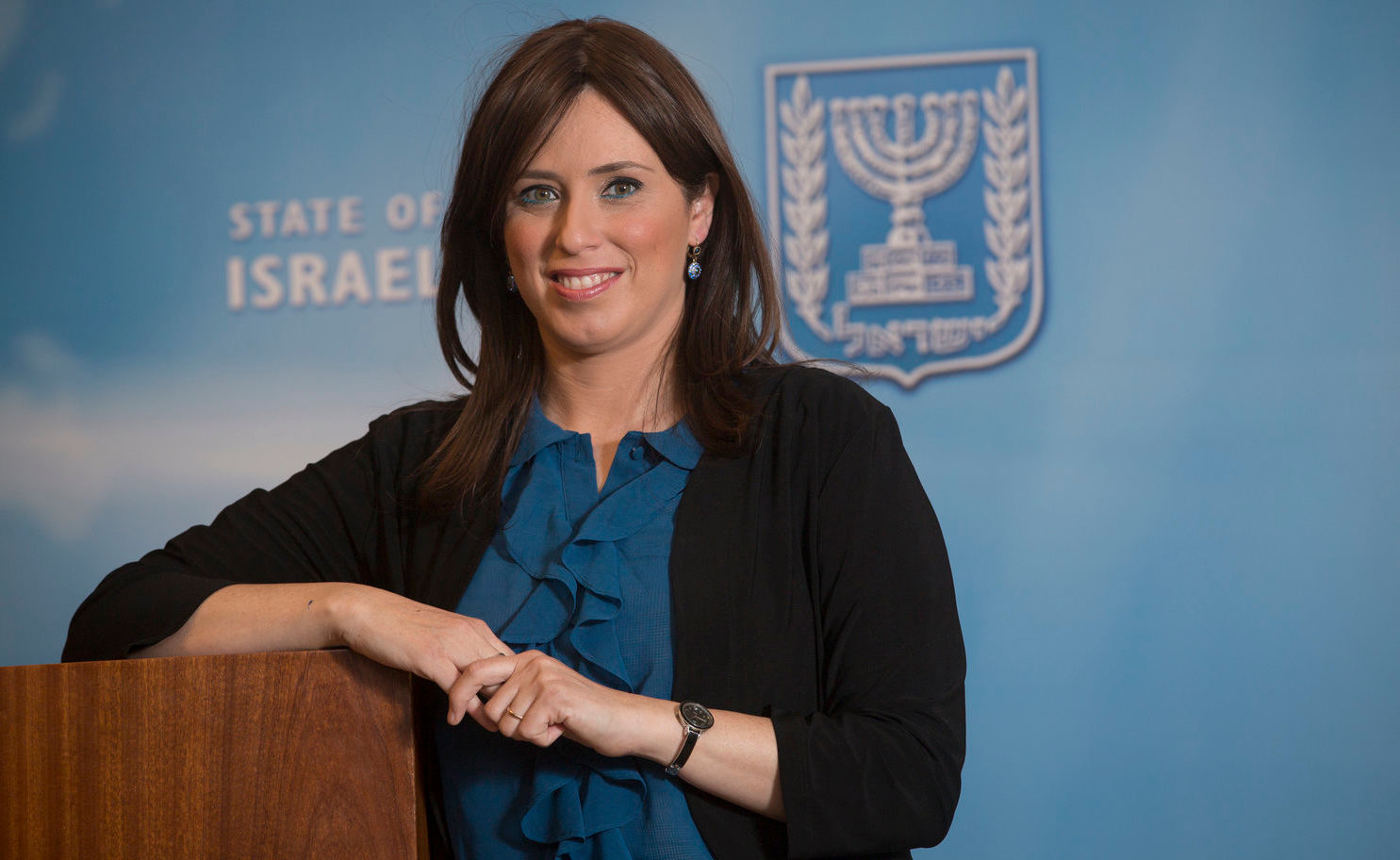Hotovely: World won’t dictate Israel’s policies
Israeli policy should not be guided by fear of international criticism, Israeli Deputy Foreign Minister Tzipi Hotovely said over the weekend as she launched a speaking tour of the U.S.
Hotovely spoke at the Kemp Mill Synagogue, an Orthodox shul in Silver Spring, Maryland, and discussed her remarks in a subsequent interview with JNS.
Hotovely said the notion that Israel is isolated and must change its policies in order to gain international acceptance is “a myth.” She pointed out that while just 33 countries voted in favor of Jewish statehood at the United Nations in 1947, Israel today enjoys diplomatic and trade relations with 160 countries—“pretty much every country in the world except the ones that want to destroy us,” as she put it.
She suggested that many countries’ criticism of Israel is little more than lip service.
“They go through the motions of criticizing Israel, but then they do a tremendous amount of trade with us,” she told JNS.
Hotovely recalled that during her first year in her current post, she met with more than 200 representatives of foreign governments, including some “that are not always thought of as being so friendly to Israel.”
At the same time, Hotovely noted, Israel throughout its history has sometimes “had no choice but to take actions that the world didn’t like.” She recalled that in 1949, when the U.N. was demanding that Jerusalem be internationalized, Prime Minister David Ben-Gurion responded by moving Israel’s government buildings from Tel Aviv to Jerusalem.
“The world didn’t like it then, and they still don’t like it, but Jerusalem is the capital of the Jewish state and the Jewish people, and it will be forever,” Hotovely said.
She also pointed to a number of actions that were crucial to Israel’s national security, even though most of the international community opposed them—including the pre-emptive strike that enabled Israel to win the 1967 Six-Day War, the rescue of the Entebbe hostages in 1976 and the bombing of Iraq’s nuclear reactor in 1981.
In each of those instances, Israel’s action was met with strong criticism from around the world.
“In fact, the United States not only condemned the bombing of the Iraqi nuclear facility, but even strongly considered imposing sanctions on Israel for violating Iraqi airspace,” Hotovely said. “But during the Gulf War of 1990, the U.S. was very glad that Saddam Hussein did not have nuclear weapons.”
“Israel’s policies cannot be guided by fear of international criticism,” she said. “At the end of the day, our survival is more important than world opinion.”
Sarah Stern, president of the Endowment for Middle East Truth, which hosted Hotovely’s visit, said the deputy foreign minister presented “a thoughtful and reasoned explanation of Israel’s position in the world, a message that has been resonating with her audiences throughout her trip to the United States.”
Hotovely, 38, speaks fluent English, thanks in part to a year she spent in Atlanta as an emissary of the Bnei Akiva religious Zionist youth movement. She is widely regarded as one of Israel’s rising political stars and is frequently mentioned as a possible successor to Prime Minister Benjamin Netanyahu.
When she was named deputy foreign minister in 2015, Hotovely became the de facto foreign minister, because Netanyahu declined to appoint a foreign minister. The prime minister has held that portfolio himself, and has offered it to the opposition’s Zionist Union alliance if it were to join his governing coalition. But to date, the Zionist Union has preferred to remain in the opposition.

 48.0°,
Overcast
48.0°,
Overcast 




